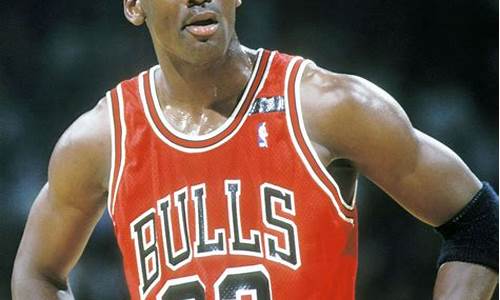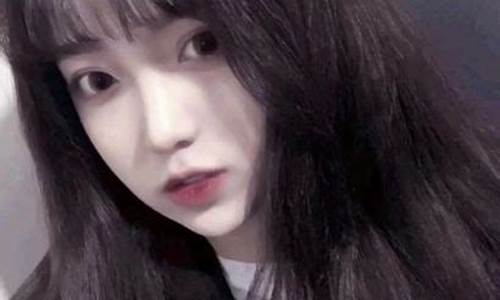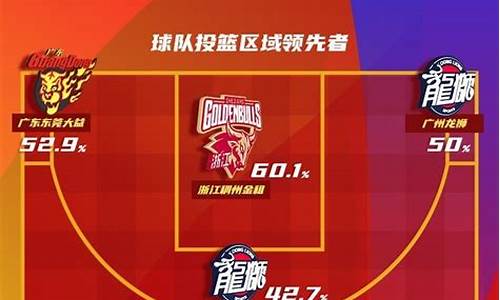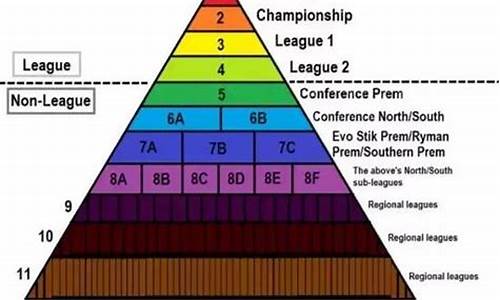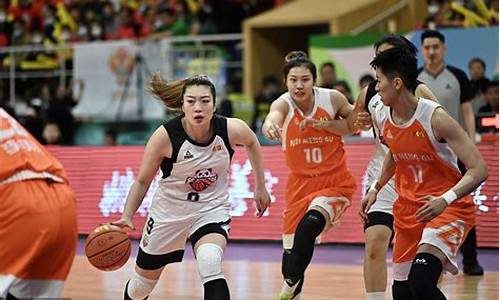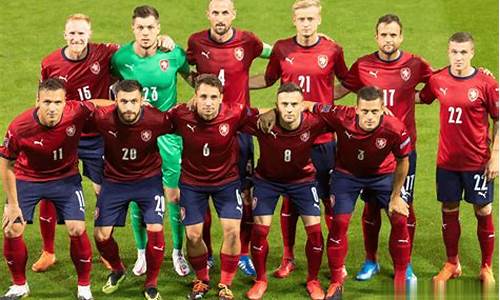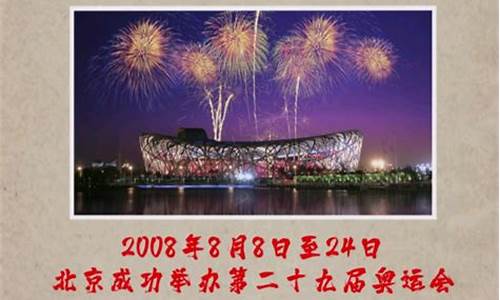1.怎样做英语奥运海报?
2.奥运福娃的形象以及名字?分别是什么动物?
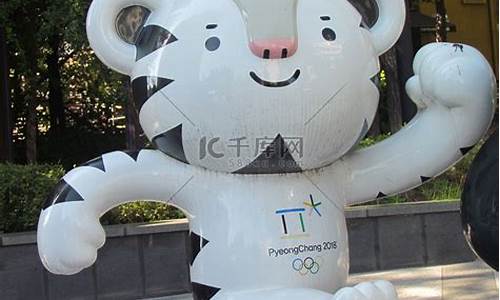
为了确保工作或事情能有条不紊地开展,我们需要事先制定方案,方案的内容多是上级对下级或涉及面比较大的工作,一般都用带“文件头”形式下发。那么优秀的方案是什么样的呢?下面是我为大家收集的大班半日活动方案,欢迎大家借鉴与参考,希望对大家有所帮助。
晨间活动:自由交往(7:00——8:10)
1、热情接待来园幼儿,鼓励幼儿主动用自带的玩具与同伴交往,培养幼儿的交往能力。
2、提醒值日生做好值日生工作,如:照管自然角;整理活动室等。
晨间锻炼:玩绳(8:10——40)
目标:
1、引导幼儿探索绳子的多种玩法,发展幼儿的创造性和发散性思维能力。
2、通过玩绳,进一步发展幼儿的平衡协调能力。
准备:长绳两条;短绳幼儿人手一条;红、蓝标记各一个。
过程:一、出示“绳子”引出活动,引起兴趣后交代上下楼梯的要求。
二、带领幼儿拿短绳进入活动场地后做热身操。
三、提出一物多玩的要求后幼儿自由探索,教师指导。
——重点:引导幼儿探索两人或多人一起合作玩的方法。
四、集中幼儿交流并相互学习新的玩绳方法,着重学习在绳子上练习走钢丝
五、游戏:“走钢丝的人”
——分红、蓝队让幼儿在“S”形的长绳上像马戏团里的叔叔、阿姨一样练习走钢丝。难点:要保持平衡不走出钢丝外。
——小结后整理活动器械回教室。
教学活动(一):福娃迎奥运(8:55——9:30)
目标:
1、通过活动使幼儿了解2008年奥运吉祥物的各自名称、特点及蕴意。
2、激发幼儿期盼奥运,并为中国举办2008年奥运感到骄傲、自豪的情感。
准备:
1、;实物福娃。
2、幼儿课前收集有关福娃的、资料,并积累一些与福娃有关的知识。
过程;
一、鼓励幼儿结合自己的已有经验说说福娃。
——我知道小朋友们收集了很多有关福娃的资料和,一定了解了很多有关福娃的知识,现在请你向你的好朋友介绍一下吧。
——幼儿自由畅谈,要求不重复说。
二、借助让幼儿深入了解福娃各自的蕴意。
——出示福娃贝贝问:这是谁?是什么颜色的?看上去像什么?每个福娃都有自己喜欢的运动,你猜猜贝贝喜欢什么运动?(幼儿如果说不上可以用谜语、或动作来鼓励他们进行猜测)
依次出示福娃晶晶、欢欢、迎迎、妮妮提问幼儿相关问题。
——五个奥运福娃都一样吗?什么地方不一样?为什么不一样?
教师小结福娃不同色彩和不同图案设计的深刻蕴意。
——福娃是我国为举办2008年奥运设计的吉祥物,你最喜欢哪一个为什么?你对祖国举办2008年奥运会有什么感想?
三、出示实物,进行问答游戏。
——五个奥运福娃都是什么颜色的?
——妮妮的头上有什么?
——谁是五个奥运福娃中的大哥哥?他的帽子像什么?
——迎迎的`头上长着什么?他代表什么运动?
——贝贝头上的花纹像什么?
——晶晶像谁?他代表五环中的哪一环?
——把五个奥运福娃名字放一起是一句什么话?
四、结束。
教学活动(二)制作奥运图标(9:50——10:20)
目标:
1、尝试用烟花棒塑造各种奥运项目图标小人的动态特征。
2、发展幼儿的想像力及动手操作能力,激发幼儿期盼奥运的情感。
准备:
1、课前让幼儿对有关奥运项目图标的知识用一定的认识。
2、彩色烟花棒;剪刀;奥运项目图标;范例。
过程:
一、出示导人活动。
——福娃们都忙着为参加2008年奥运会做准备呢!你能看出他们参加哪些运动项目吗?
——出示,引导幼儿说说自己是从福娃的哪个动作看出来的,鼓励幼儿上前带大家一起来学一学这些动作。
——幼儿一起,边说边学做里福娃的运动姿势,教师快速用简笔画的形式在黑板上画出这些运动的姿态。
二、讲解、示范。
——重点:引导幼儿观察范例,掌握制作方法
(出示范例)瞧!奥运项目图标小人来了,猜猜是用什么材料做成的?谁能仔细看看,想想奥运项目图标小人的头怎么做?手和脚分别是怎么缠上去的?(请个别幼儿尝试来做一做后告诉幼儿:这叫烟花棒;这是用几根烟花棒组合做成的。)
教师小结动作要领:小脑袋一圈圈从头往里卷得紧;手、脚分别对折交后拉拉紧,多余的剪去。
——难点:与幼儿一起探讨分析奥运项目图标小人不同动态的制作方法。
(出示三个不同动态的奥运项目图标小人)你能猜出这些奥运项目图标小人在做什么运动吗?你从哪里看出来的?
教师小结:奥运项目图标小人动态造型重在四肢的塑造。
三、交代要求,教师指导,
——出示大幅的奥运项目图标,鼓励幼儿大胆尝试塑造新的图标,并注意安全。
——鼓励速度快的幼儿为多尝试做几个。
——要求幼儿运用正确的要领,缠时缠的紧不散开来。
四、交流展示作品。
——将作品布置成主题墙上。
——讨论:你最喜欢哪个奥运项目图标小人的动态造?为什么?
五、收拾整理。
上午活动:踩高跷(10:20——10:50)
目标:
1、能踩着高跷往前走,保持身体平衡。
2、提高动作的协调性和灵活性,培养幼儿对踩高跷的兴趣。
准备:幼儿人手一副高跷。
过程:
一、热身游戏“和我做相反”。
二、小结上次踩高跷时总结的动作要领:
眼睛看前面;小脚踩中间;小手要拉紧。
三、交代幼儿的要求,带幼儿一起踩着高跷去幼儿园旅行。
——安全教育;
——教育幼儿要有有坚强的意志,有坚持到底勇于克服困难的决心。
四、小结游戏情况,分发小奖品。
怎样做英语奥运海报?
工具:白纸、黑水笔。
1、在白纸画上椭圆形,作为头部。
2、在脑门的部位画上花纹,如图所示。
3、给福娃画上两个椭圆眼睛。
4、然后画上两只耳朵,如图示。
5、然后画上锯齿状的头发,如图所示。
6、再画两个不规则的椭圆作为手臂。
7、然后再画一个椭圆作为身体。
8、然后再把腿画上,如图所示。
9、然后,在脸上画上五官,如图所示,眼睛里面眼白的地方涂上黑色。
10、最后,可以看到,简笔画已经完成了。
奥运福娃的形象以及名字?分别是什么动物?
画了个超大的奥运五环,然后在中间黑色的环中画上中国印,写上“Beijing 2008”。剩余的四环中你抄一些文章。标题可以在五环下面,空的地方画了一些简笔画,很简单,并写上英文。
2008北京奥运会吉祥物福娃英文介绍
The Official Mascots of the Beijing 2008 Olympic Games
Like the Five Olympic Rings from which they draw their color and inspiration, Fuwa will serve as the Official Mascots of Beijing 2008 Olympic Games, carrying a message of friendship and peace--and blessings from China--to children all over the world. Designed to express the playful qualities of five little children who form an intimate circle of friends, Fuwa also embody the natural characteristics of four of China's most popular animals--the Fish, the Panda, the Tibetan Antelope, the Swallow--and the Olympic Flame. Each of Fuwa has a rhyming two-syllable name--a traditional way of expressing affection for children in China. Beibei is the Fish, Jingjing is the Panda, Huanhuan is the Olympic Flame, Yingying is the Tibetan Antelope and Nini is the Swallow. When you put their names together--Bei Jing Huan Ying Ni--they say "Welcome to Beijing," offering a warm invitation that reflects the mission of Fuwa as young ambassadors for the Olympic Games. Fuwa also embody both the landscape and the dreams and aspirations of people from every part of the vast country of China. In their origins and their headpieces, you can see the five elements of nature--the sea, forest, fire, earth and sky--all stylistic rendered in ways that represent the deep traditional influences of Chinese folk art and ornamentation. Spreading Traditional Chinese Blessings Wherever They Go In the ancient culture of China, there is a grand tradition of spreading blessings through signs and symbols. Each of Fuwa symbolizes a different blessing--and will honor this tradition by carrying their blessings to the children of the world. Prosperity, hiness, passion, health and good luck will be spread to every continent as Fuwa carry their invitation to Beijing 2008 to every part of the globe. At the heart of their mission--and through all of their work--Fuwa will seek to unite the world in peace and friendship through the Olympic spirit. Dedicated to helping Beijing 2008 spread its theme of One World, One Dream to every continent, Fuwa reflect the deep desire of the Chinese people to reach out to the world in friendship through the Games--and to invite every man, woman and child to take part in the great celebration of human solidarity that China will host in the light of the flame in 2008.
Like all antelopes, Yingying is fast and agile and can swiftly cover great stretches of land as he races across the earth. A symbol of the vastness of China's landscape, the antelope carries the blessing of health, the strength of body that comes from harmony with nature. Yingying's flying pose captures the essence of a species unique to the Qinghai-Tibet Plateau, one of the first animals put under protection in China. The selection of the Tibetan Antelope reflects Beijing commitment to a Green Olympics. His head ornament incorporates several decorative styles from the Qinghai-Tibet and Sinkiang cultures and the ethnic design traditions of Western China. Strong in track and field events, Yingying is a quick-witted and agile boy who represents the yellow Olympic ring. Every spring and summer, the children of Beijing he flown beautiful kites on the currents of wind that blow through the capital. Among the kite designs, the golden-winged swallow is traditionally one of the most popular. Nini's figure is drawn from this grand tradition of flying designs. Her golden wings symbolize the infinite sky and spread good-luck as a blessing wherever she flies. Swallow is also pronounced "yan" in Chinese, and Yanjing is what Beijing was called as an ancient capital city. Among Fuwa, Nini is as innocent and joyful as a swallow. She is strong in gymnastics and represents the green Olympic ring.
In the intimate circle of Fuwa, Huanhuan is the big brother. He is a child of fire, symbolizing the Olympic Flame and the passion of sport--and passion is the blessing he bestows. Huanhuan stands in the center of Fuwa as the core embodiment of the Olympic spirit. And while he inspires all with the passion to run faster, jump higher and be stronger, he is also open and inviting. Wherever the light of Huanhuan shines, the inviting warmth of Beijing 2008--and the wishful blessings of the Chinese people--can be felt. The firery designs of his head ornament are drawn from the famed Dunhuang murals--with just a touch of China's traditional lucky designs. Huanhuan is outgoing and enthusiastic. He excels at all the ball games and represents the red Olympic ring.
Jingjing makes children smile--and that's why he brings the blessing of hiness wherever he goes. You can see his joy in the charming naivety of his dancing pose and the lovely we of his black and white fur. As a national treasure and a protected species, pandas are adored by people everywhere. The lotus designs in Jingjing's headdress, which are inspired by the porcelain paintings of the Song Dynasty (A.D.960-1234), symbolize the lush forest and the harmonious relationship between man and nature. Jingjing was chosen to represent our desire to protect nature's gifts--and to preserve the beauty of nature for all generations. Jingjing is charmingly na?ve and optimistic. He is an athlete noted for strength who represents the black Olympic ring.
In China's traditional culture and art, the fish and water designs are symbols of prosperity and harvest. And so Beibei carries the blessing of prosperity. A fish is also a symbol of surplus in Chinese culture, another measure of a good year and a good life. The ornamental lines of the water-we designs are taken from well-known Chinese paintings of the past. Among Fuwa, Beibei is known to be gentle and pure. Strong in water sports, she reflects the blue Olympic ring.
我的海报就这么做的,还不错。希望你能纳我。
福娃是五个可爱的亲密小伙伴,他们的造型分别融入了鱼、大熊猫、奥林匹克圣火、藏羚羊以及沙燕风筝的形象。? 每个娃娃都有一个琅琅上口的名字:“贝贝”、“晶晶”、“欢欢”、“迎迎”和“妮妮”。在中国,叠音名字是对孩子表达喜爱的一种传统文化方式。当把五个娃娃的名字连在一起时,你会读出北京对世界的盛情邀请“北京欢迎您”。? 福娃代表了梦想以及中国人民的渴望啊!
编辑本段“福娃”的外形
“福娃”是五个拟人化的娃娃,他们的原型和头饰蕴含着与海洋、森林、火、大地和天空的联系,应用了中国传统艺术的表现方式,展现了灿烂的中国文化的博大精深。北京奥运会吉祥物的每个娃娃都代表着一个美好的祝愿:贝贝象征繁荣、晶晶象征欢乐、欢欢象征、迎迎象征健康、妮妮象征好运。娃娃们带着北京的盛情,将祝福带往世界各个角落,邀请各国人民共聚北京,欢庆中国北京的2008奥运盛典。五个福娃分别叫“贝贝”、“晶晶”、“欢欢”、“迎迎”、“妮妮”。各取它们名字中的一个字有次序的组成了谐音“北京欢迎你”。

